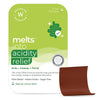We’ve all been there—an uncomfortable burning sensation in the chest, a sour aftertaste creeping up the throat, or an unsettling feeling of bloating after a meal. If these symptoms sound familiar, you’re not alone. But have you ever wondered what exactly is acidity and why it happens? More importantly, how can you manage it effectively without reaching for antacids every time? Let’s break it down.
What is Acidity?
Acidity occurs when the stomach produces excess acid, leading to irritation in the digestive tract. While stomach acid is essential for breaking down food and absorbing nutrients, an imbalance in stomach acid can trigger discomfort. If left unchecked, this can lead to frequent acid reflux, heartburn, and even long-term digestive issues.
How Acidity Occurs: The Science Behind It
The stomach produces hydrochloric acid (HCl) to aid digestion. However, when there’s an overproduction or improper regulation of this acid, it starts irritating the stomach lining and esophagus. This is what leads to heartburn and acid reflux.
One of the main acid reflux causes is a weak lower esophageal sphincter (LES). The LES acts as a valve between the stomach and the esophagus, preventing acid from flowing back up. When it weakens due to poor diet or lifestyle habits, stomach acid can escape, causing discomfort.
Other Common Causes of Acidity
Understanding the causes of acidity is key to managing it effectively. Some of the triggers include:
1. Diet Choices
-
Spicy & fried foods: Can irritate the stomach lining and increase acid production.
-
Caffeine & carbonated drinks: Stimulate acid secretion and weaken the lower esophageal sphincter (LES).
-
Alcohol: Relaxes the lower esophageal sphincter (LES), making acid reflux more likely.
-
Processed foods: Contain additives that disrupt digestion and increase acidity.
2. Eating Habits
-
Eating large meals: Overloading the stomach can lead to acid overproduction.
-
Eating too fast: Poor chewing puts extra stress on digestion.
-
Lying down after eating: Increases the chance of acid reflux.
3. Lifestyle Factors
-
Chronic stress: Elevates cortisol levels, disrupting digestion and acid regulation.
-
Lack of sleep: Affects gut health, leading to poor digestion.
-
Smoking: Weakens the lower esophageal sphincter (LES), making acid reflux more common.
Acidity Symptoms: What to Watch Out For
The signs of acidity aren’t always just a burning sensation in the chest. Here are some common acidity symptoms to be mindful of:
-
Heartburn: A burning sensation in the chest, especially after eating.
-
Sour taste: A bitter or sour aftertaste in the mouth due to acid backing up into the esophagus.
-
Bloating: A feeling of fullness or tightness in the stomach.
-
Frequent burping: Excess gas production leading to constant belching.
-
Hiccups: Persistent, uncontrollable hiccups.
-
Nausea: A queasy feeling, sometimes accompanied by vomiting.
If these symptoms become frequent, they may indicate a deeper issue with stomach acid imbalance that needs addressing.
Ways to Manage Acidity Naturally
Instead of relying on quick fixes, long-term solutions can help restore balance to your digestive system. Here’s how:
1. Dietary Adjustments
-
Increase fiber intake: Whole grains, fruits, and vegetables improve digestion.
-
Eat alkaline foods: Leafy greens, bananas, and cucumbers help neutralize acid.
-
Include probiotic-rich foods: Yogurt, kefir, and fermented vegetables support gut health.
-
Stay hydrated: Water aids digestion and reduces acid buildup.
2. Mindful Eating Practices
-
Eat smaller, more frequent meals instead of large portions.
-
Chew food thoroughly to ease digestion.
-
Avoid eating close to bedtime to prevent acid reflux.
3. Lifestyle Changes
-
Manage stress: Practices like yoga, meditation, and deep breathing can improve digestion.
-
Prioritize sleep: A consistent sleep schedule supports gut health.
-
Exercise regularly: Helps maintain a healthy weight and reduces pressure on the stomach.
4. Natural Acidity Relief Herbs
Incorporating natural herbs into your routine can provide long-lasting relief from acidity:
-
Amla: Rich in Vitamin C and powerful antioxidants, amla soothes the stomach lining while alleviating acid reflux at its root.
-
Fennel: Abundant in phenolic compounds, fennel works to neutralize excess acid, ease bloating, and provide a naturally cooling effect for lasting relief.
-
Mint: Revered for its cooling and natural antacid properties, mint helps relax stomach muscles, alleviates indigestion, and soothes acid reflux effortlessly.
-
Licorice Root: Known for its soothing properties, licorice root forms a protective layer in the stomach, reducing irritation from excess acid.
-
Ginger: Acts as a natural anti-inflammatory agent, supporting digestion and reducing stomach acid production.
Choosing the Right Support for Digestive Health
If lifestyle changes alone aren’t enough, natural formulations designed to manage acidity can be a great addition. Look for options that:
-
Contain clinically studied natural extracts which work to neutralize excess stomach acid and promote digestion.
-
Include herbal blends infused with cooling agents like mint and soothing botanicals to provide rapid and lasting relief from acidity.
-
Feature advanced absorption technology, such as effervescent or melts formulations, that deliver nutrients effectively for quick relief.
-
Are free from artificial additives, making them safe for long-term use.
One good option is Wellbeing Nutrition’s Acidity Relief Melts, a fast-acting, natural remedy designed to combat acidity at its root. These dissolvable oral strips contain a powerful blend of Amla, Fennel, Licorice, Mint, and Caraway, known for their soothing properties and ability to restore gut balance. With nano-technology for better absorption, these melts provide instant relief by neutralizing excess acid, reducing bloating, and supporting digestion—all without artificial additives. Their on-the-go format makes them a convenient and effective solution for acidity relief anytime, anywhere.
Final Thoughts
Acidity isn’t just a minor inconvenience—it’s a sign your digestive system needs attention. Understanding the causes of acidity and making small yet impactful lifestyle shifts can help restore balance. By incorporating gut-friendly foods, adopting mindful eating habits, and considering natural support, you can achieve long-term heartburn relief and a happier, healthier gut.
So next time you feel the burn, think beyond quick fixes and give your gut the care it deserves.
































